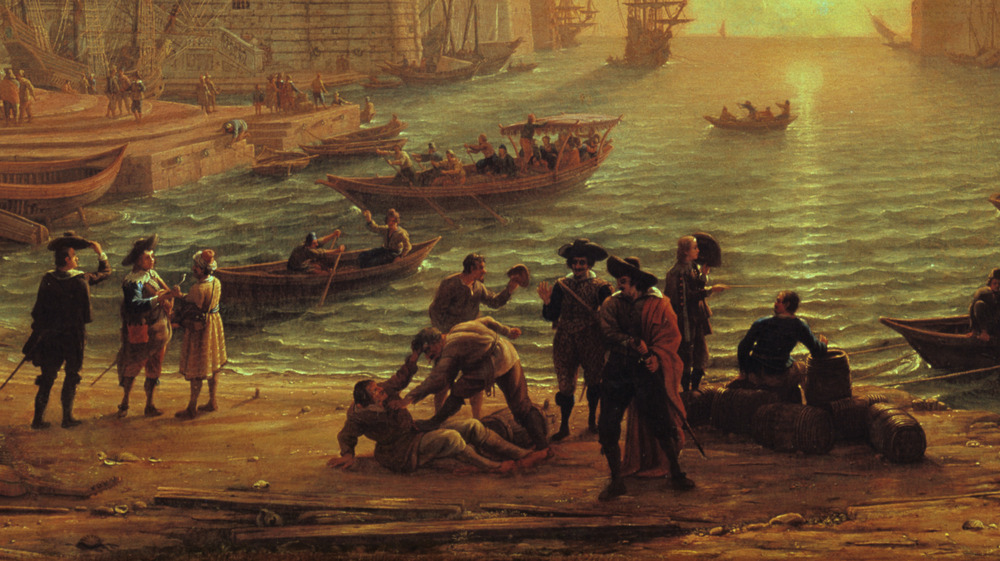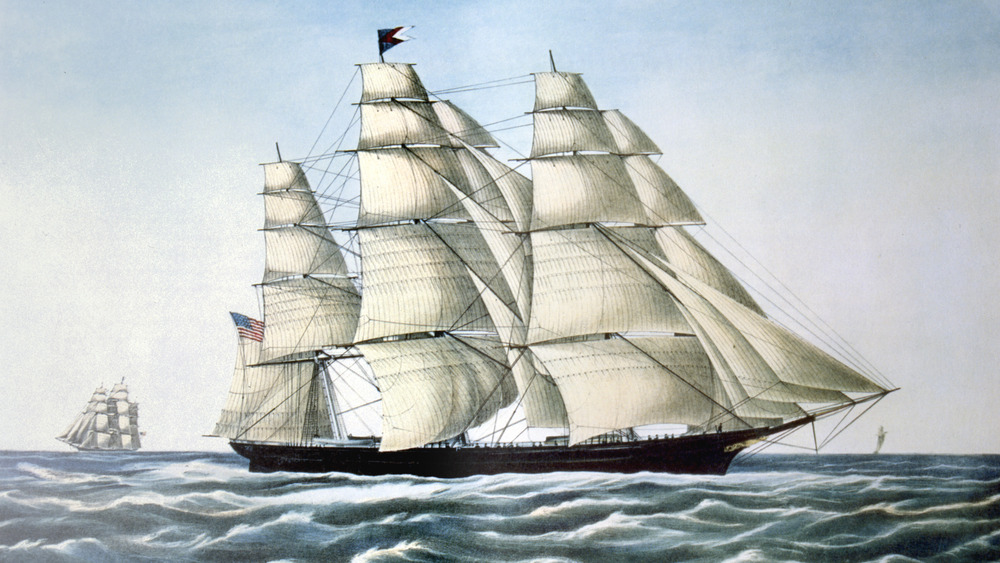When Ships' Crews Were Shanghaied
Shanghaiing was a predecessor to what we would today call human trafficking. Or another word for the practice could be straight-up kidnapping. One big difference between kidnapping and shanghaiing, though, is that shanghaiing only happened to adult men.
According to Amusing Planet, the height of maritime's heyday was from the 16th to 19th centuries. European nations were exploring, warring, and trading en masse via seafaring, and there often weren't enough willing men willing to crew the ships. Morgan Marine reports that the conditions on naval ships were bad and the work was dangerous, making it an unsavory prospect for many.
To solve the problem of finding men to go to sea, groups of 10 or so men, called "press gangs" or crimpers, were hired to find men and bring them onto ships. To physically get the unwitting men onto the ships press gangs resorted to drugging men's drinks or knocking them unconscious, according to Amusing Planet. The crimpers would even go so far as to forge the man's signature on the ship contract. If they didn't know the man's name, they'd make one up.
According to Morgan Marine, fights often ensued, but men who were getting shanghaied were outnumbered. The practice was so popular that it even spilled over into the United States when the nation was in its infancy.
There was a lot of money to be made off the backs of shanghaied men
According to Amusing Planet, in 1757, while the U.S. was still under England's rule, one of the largest shanghaiing efforts ever took place in New York City, when 3,000 British soldiers forced 400 men onto ships after pulling them from pubs and other places sailors of the day hung out.
Ideally, press gangs wanted to find actual sailors, or at least men with maritime experience, but they were paid by the number of bodies they could get on ships. According to American Heritage, there were jobs on the ship that didn't require a man to have seafaring knowledge, so men from any trade would do. Amusing Planet reported that a successful press gang company in 1890 could earn $9,500 per year, which would be about $250,000 in today's money.
The practice of shanghaiing happened in coastal towns all over the U.S. according to American Heritage, but mostly in New York, San Francisco and Portland, Oregon. American Heritage further reported that today there are wealthy families on the U.S. West Coast who owe their fortunes to the efforts of shanghaied men, but those families "are not eager to have the world discover that their ancestral fortune began with a blow to somebody's head."
Found San Francisco reported in 1906 Congress passed the Act to Prohibit Shanghaiing in the United States (posted at Lapham's Quarterly). That, along with the formation of the Seamen's Union, put and end to the practice in the U.S.

